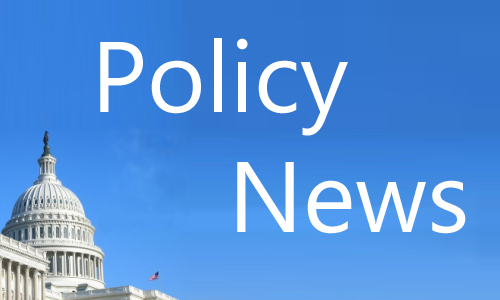ESA Policy News October 28: President, Congress reach two-year budget deal, Ryan nominated House speaker, Canada elects Trudeau prime minister
Here are some highlights from the latest ESA Policy News by Policy Analyst Terence Houston. Read the full Policy News here. 
BUDGET: WHITE HOUSE, CONGRESS REACH TWO-YEAR BUDGET AGREEMENT
The White House and Congressional leaders have finalized a budget deal that raises the debt limit and sets spending levels for Fiscal Years 2016 and 2017. The bill passed the House Oct. 28 by a vote of 266-167. All voting Democrats were joined by 79 Republicans in support of the measure. All 167 opposing votes came from Republicans.
Dubbed the “Bipartisan Budget Act of 2015,” the deal would extend the debt ceiling until March 5, 2017. Similar to the Bipartisan Budget Act of 2013 (P.L. 113-67), it would provide relief for sequestration—automatic spending cuts to discretionary spending programs that are set to go into effect next year. The bill would increase overall discretionary spending by $80 billion over the next two years, equally divided between defense and nondefense discretionary programs.
The discretionary spending increases would provide an additional $50 billion above the sequestration spending caps for discretionary programs in FY 2016 and $30 billion in FY 2017. It also includes an additional $32 billion in Overseas Contingency Operations for defense and non-defense security programs for the next two fiscal years.
In September, the Ecological Society of America joined 2,500 national, state and local organizations in signing a letter to Members of Congress requesting they replace sequestration with a more balanced approach to deficit reduction. Click here to view the letter.
HOUSE: RYAN SELECTED TO BE NEW SPEAKER NOMIMEE
Rep. Paul Ryan (R-WI) was selected by House Republicans today as their nominee for speaker of the House. This will be followed by a formal vote on the floor of the US House of Representatives on Oct. 29. Boehner will resign from the House on Oct. 30.
Ryan’s agreement to be speaker rested upon his colleagues assurance of the necessary 218 Republican votes needed to win, which he secured at the close of last week when a majority of the far-right House Freedom Caucus indicated their support.
WHITE HOUSE: OBAMA ADMINISTRATION ADDS 68 BUSINESSES TO CLIMATE PLEDGE
On October 19, the White House announced that 68 additional companies have signed its “American Business Act on Climate Pledge” joining 13 others who first signed the pledge in June.
In signing the “American Business Act on Climate Pledge,” they voiced support for a strong outcome in the upcoming Paris climate negotiations by pledging to reduce their carbon emissions and improve sustainability.
Collectively, the 81 companies “have operations in all 50 states, employ over 9 million people, represent more than $3 trillion in annual revenue, and have a combined market capitalization of over $5 trillion,” according to the White House.
Click here for additional information.
WHITE HOUSE: NEW MEMO REQUIRES AGENCIES TO CONSIDER ECOSYSTEM SERVICES
On Oct. 7, the White House released a memorandum directing federal agencies to factor ecosystem services in their planning and decision-making.
The guidance is intended to support federal agencies currently using ecosystem services approaches and encourage other agencies to incorporate these services when developing policy. The memo directs federal agencies to submit a written description of their work plan to incorporate ecosystem services into their planning, management, and regulatory decisions to the Council on Environmental Quality no later than March 30, 2016.
Click here to view the memo.
CANADA: LIBERAL PARTY SWEEPS ELECTIONS, TRUDEAU ELECTED PRIME MINISTER
The Oct. 19 Canada national elections resulted in an overwhelming victory for the country’s Liberal Party, culminated in the election of Justin Trudeau as Canada’s new prime minister.
As prime minister, Trudeau has pledged to focus on addressing climate change and renewable energy investment. He also vowed to appoint a new chief science adviser, a position his predecessor Stephen Harper eliminated. As part of its party platform, the Liberal Party pledges to “restore credibility in environmental assessments.” The election could have consequences for how the Canadian government reviews the Keystone XL pipeline and may influence the Obama administration’s final decision on whether to approve the pipeline.